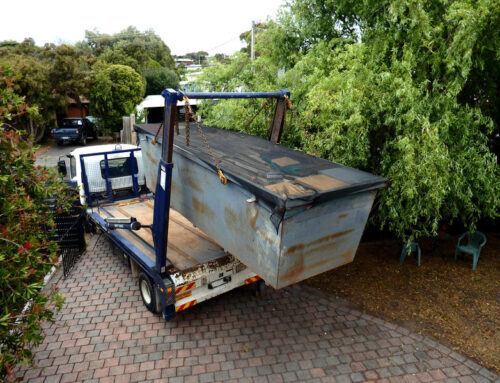Maintaining efficiency in a home office environment has become a priority for millions of Americans who now work at home due to the coronavirus pandemic. Most people deal with the typical distractions of family, pets, and neighbors, but one thing they may not have considered is that working in a cluttered environment can have a negative effect on productivity. Follow a few simple rules helps ensure a more productive home office.
According to a study conducted by Princeton University, clutter in a home office environment competes for the worker’s attention, increases stress levels, and can reduce productivity. Clutter is a distraction because it can become the focus rather than the work at hand. Losing focus can make employees feel guilty, leading to a never-ending cycle of playing catch-up. An unorganized office also costs workers time when they can’t find what they need. Fortunately, work-at-home employees can make a few simple changes to declutter their home office.
Schedule for Decluttering to Improve Productivity
Clutter can quickly become so overwhelming that at-home employees avoid dealing with it all. Rather than having to devote considerable time to clearing clutter, people working from home should consider establishing a schedule to clean and organize the home office. The process should only take a few minutes and will quickly reduce stress.
Keep clutter under control by allowing only essential items on your desk. These include things used daily such as a computer, phone, and office supplies. Paper items should only be on the desk if the employee plans to use them that day. Anything else can go in a drawer or filing cabinet.
If there are bulky or large items that require purging, contact a local junk hauling provider to assist with a quick removal.
Make the Home Office Comfortable and Enjoyable
Once the home office is less cluttered, the next goal should be to set it up as a comfortable and enjoyable place to work. Artwork, personal photos, and plants are just some ideas to personalize the space and make it easier to concentrate on work.
Remove distractions such as TVs and don’t bring personal items such as mail into the home office. This helps promote an efficient work environmentl. If no extra room is available and family members tend to interrupt, claiming the corner of a living room or bedroom and setting up partitions will help establish home-work boundaries.
Invest in Extra Storage Components if Necessary
A small workspace can easily become cluttered by papers, reference materials, cords, and more. If storage space is a concern, at-home workers may wish to consider purchasing an inexpensive filing cabinet or an extra dresser to keep items from stacking up or lying all over the desk.
Going wireless whenever possible helps to prevent the issue of too many cords. Such items clutter the workspace and create a potential tripping hazard. Attach the remain cords together and recycle the ones no longer used to create a more efficient workspace.
Consider the Home Office Layout Carefully
Placing office furniture in a way that leaves maximum space for walking also makes it appear less crowded. It is also important to take advantage of natural light to avoid eyestrain and fatigue. However, people who become distracted easily should avoid placing their desk against a window.
Another consideration is noise. Studies show that a comfortable, low-noise environment is key for maintaining a good level of work from home productivity.
With the work at home trend growing each year, the issue of efficiency will remain a major concern. The tips above should help anyone feel like they have put in a productive day at the home office.






Leave A Comment